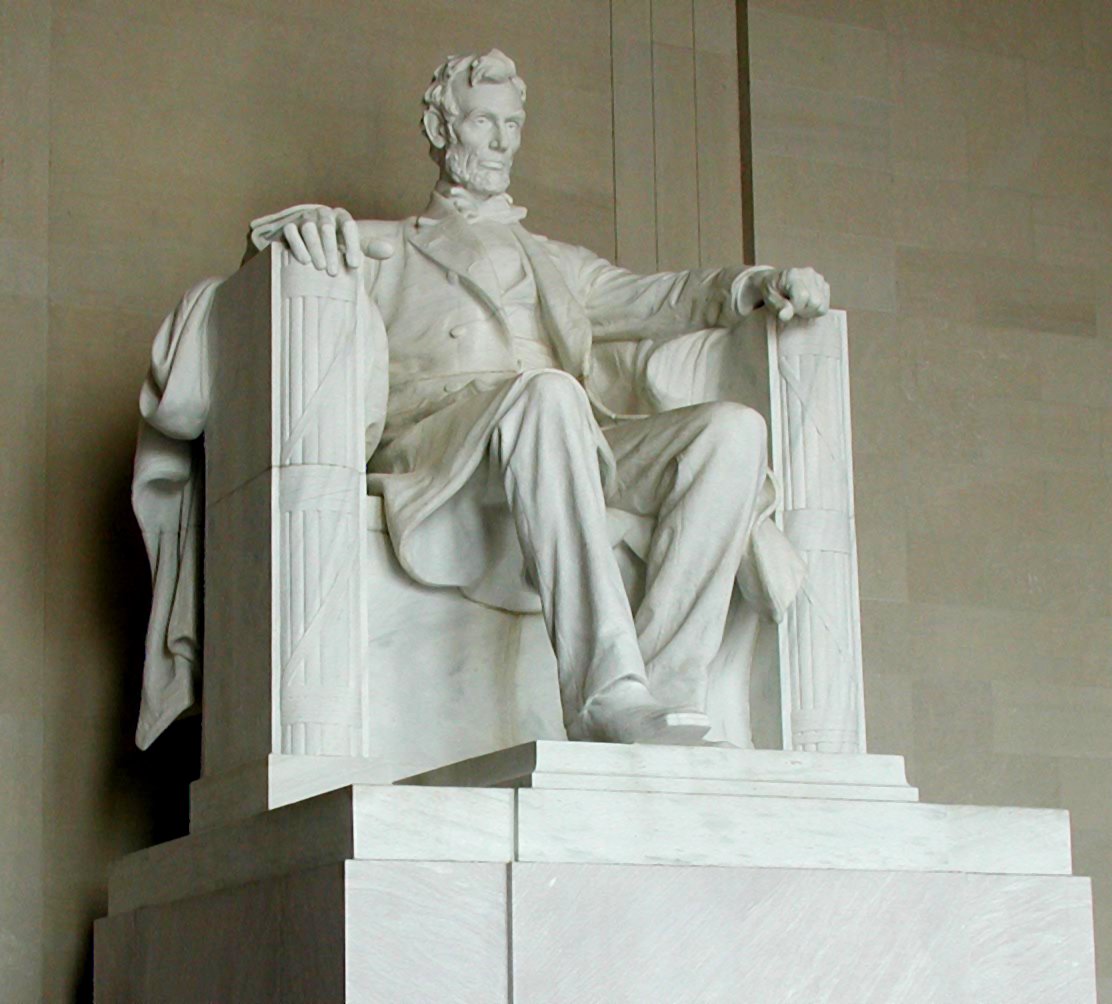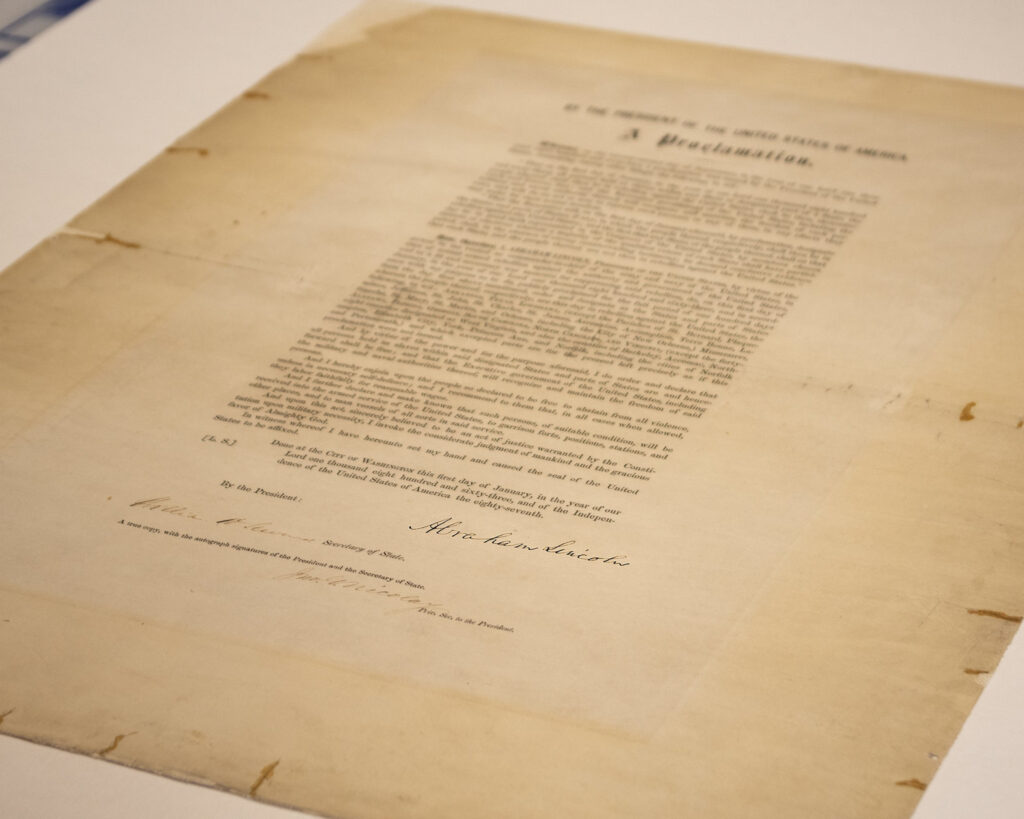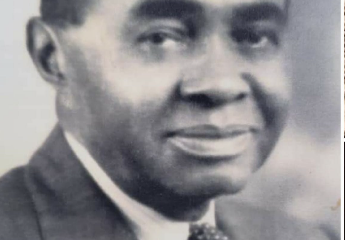Featured
President Abraham Lincoln Started The New Year in 1863 By ‘Doing Right’

When Lincoln signed the Emancipation Proclamation on January 1, 1863, he said, “I never, in my life, felt more certain that I was doing right, than I do in signing this paper. If my name ever goes into history it will be for this act, and my whole soul is in it.”
Lincoln’s leadership during the Civil War and the abolition of slavery are the reasons many historians consider him the greatest president of the United States.
The decision to sign the Emancipation Proclamation changed the focus of the war from preserving the Union to also freeing the slaves, and Lincoln’s signature paved the way for the enslaved to fight for their own freedom with the president declaring African Americans of “suitable condition, would be received into the armed service of the United States.”
For the first time, Black soldiers could fight for the U.S. Army. Abolitionists like Frederick Douglass had pushed for Black men to fight in the Civil War.
Douglass said, “Once let the Black man get upon his person the brass letters, U.S.; let him get an eagle on his button, and a musket on his shoulder and bullets in his pocket, and there is no power on earth which can deny that he has earned the right to citizenship.”
At first, Lincoln worried those sentiments — arming African Americans — would push the loyal border states to secede from the Union. But he, ultimately, decided more troops were essential to winning as white volunteers began dwindling and African Americans demonstrated a consistent willingness to help.

A Black Civil War hero: Alexander Augusta
Dr. Alexander Augusta was the highest-ranking Black officer in the Union Army. He was a physician who became the first Black head of a hospital (Freedman’s Hospital) and the first Black professor of medicine (Howard University) after his years in the Army.
In the years before the war, discrimination forced Augusta to travel to Canada for his medical education. Born to free parents in Virginia in 1825, he worked as a barber in Maryland while preparing to study medicine. The University of Pennsylvania would not accept him as a student, but a faculty member taught him privately. In 1850 he and his wife moved to Toronto, Canada, where he completed his studies in 1856. Augusta was appointed head of Toronto City Hospital.
Three months after President Lincoln signed the Emancipation Proclamation, Augusta was commissioned as a major in the U.S. Army and appointed head surgeon in the . He was paid $7 a month which was less than white privates received.
The treatment of Dr. Augusta, who was attacked by whites because he was wearing a soldier’s uniform, and other Black soldiers was shaped by racism. Formerly enslaved soldiers were threatened with execution if they were captured by the Confederate troops. Their white commanders would likewise be punished — even executed — for what the Confederates called “inciting servile insurrection.”
There was also the issue of pay. According to History.com, the U.S. Army paid Black soldiers $10 a month (minus a clothing allowance) while white soldiers received $3 more per month (plus a clothing allowance in most cases). In 1864, Congress passed a bill authorizing equal pay for Black and white servicemen.
When the war ended in 1865, 180,000 Black men had fought for the Union Army. Records indicate 10,000 died in battle with another 30,000 succumbing to illness and infections.

-

 Black History5 months ago
Black History5 months agoThe untold story of a Black woman who founded an Alabama hospital during Jim Crow
-

 Featured9 months ago
Featured9 months ago‘No Closure’ In Town Where Five Black Residents Were Either Murdered, Died Suspiciously Or Are Missing
-

 Black History9 months ago
Black History9 months agoBlack History Lost and Found: New Research Pieces Together the Life of Prominent Texas Surgeon and Activist
-

 Featured9 months ago
Featured9 months agoFounder of “The Folding Chair” Podcast Calls Montgomery’s Brawl ‘Karma’
-

 Featured8 months ago
Featured8 months agoThousands ‘Live Their Dream’ During National Black Business Month
-

 Featured10 months ago
Featured10 months agoJuneteenth And ‘246 Years Of Free Labor’ Are Key To Conversations About Reparations



